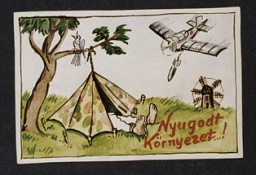You searched for: ��������������������������������������������� ���fuk7778���labor
<< Previous | Displaying results 176-200 of 1002 for "��������������������������������������������� ���fuk7778���labor" | Next >>
-
Rachel Lejzerowicz Rechnitz
ID CardRachel, or Ruchla as she was called, was raised by Jewish parents in the small southwestern Polish town of Bedzin. In 1930 she moved with her husband, Bernard, to the nearby city of Katowice, where Bernard had a wholesale leather business. The couple lived with their two children, Moses and Genia, in a three-bedroom, upper-floor apartment on Jordana Street. 1933-39: Ruchla was active in Hadassah, a women's Zionist organization, and in 1939 she and her husband prepared to immigrate to Palestine [Aliyah…
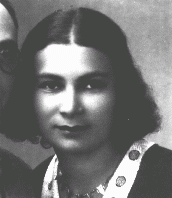
-
Dezso Rozsa
ID CardDezso was from a Jewish family in Hungary's capital, Budapest. His father had been a violinist. Dezso earned a university degree in English, and became a language teacher. He wrote a number of high school grammar textbooks. In 1914 he married Iren Hajdu, who was a mathematician. The couple had two children; a daughter, Eva, born in 1918, and a son, Pal, born seven years later. 1933-39: Dezso fears for the worst now that the antisemitic Prime Minister Teleki has taken power again. Nineteen years ago, in…
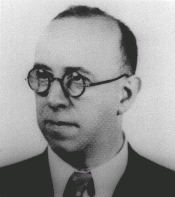
-
Kalman Goldberg
ID CardKalman was one of seven children born to religious Jewish parents in the town of Tarnow. He attended public school in the morning and religious school in the afternoon. Kalman's father owned a factory that manufactured kosher soap, sabbath candles and candles for church altars. The Goldbergs lived above their factory, which was located in a predominantly Jewish neighborhood. 1933-39: The Germans occupied Tarnow on September 8, 1939. The next day, they burned the synagogues. One synagogue, built of stone…
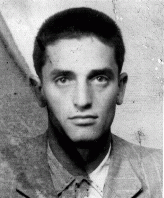
-
Edit Grinsphun
ID CardEdit, the eldest of two children born to a Jewish family, was raised in Bulboaca, a Romanian village of 2,000 people. Her father was a farmer, and he also worked in the town's railway office. Edit attended public school for four years and then, at age 11, went to the nearby town of Bendery for high school. 1933-39: In Bendery, Edit's parents rented a room for her near the school. At school she studied several foreign languages, but she wasn't taught politics--the teachers said that politics was bad for…
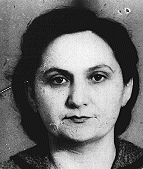
-
Masza Tenenbaum
ID CardThe youngest of three children, Masza was born to Jewish parents living 35 miles east of Warsaw in the small predominantly Jewish town of Kaluszyn. Her father owned a shop where he sold cosmetics and non-prescription medicines. Masza was close friends with a group of Jewish teenagers who went to the same public school and who spent much of their free time and vacations together. 1933-39: Majlich, Sara, and the rest of Masza's group have always liked discussing politics as they strolled down the main…
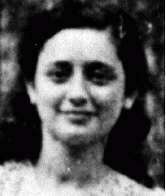
-
Moses Rechnitz
ID CardThe younger of two children, Moses was born to Jewish parents living in the southwestern Polish town of Bedzin. When he was 7, his family moved to the nearby city of Katowice where his father had a wholesale leather business. The Rechnitzes lived in a three-bedroom, upper-floor apartment on Jordana Street. Moses attended a Polish elementary school and also received religious instruction. 1933-39: In secondary school, Moses was one of the only Jewish pupils. He first encountered antisemitism when a teacher…
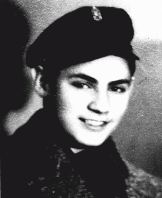
-
Felix Krakauer
ID CardFelix was one of six children born to Jewish parents in a small Moravian town, where his father ran a dry goods and clothing store. The family spoke Czech and German at home and Felix attended German-language schools. As a youth, he belonged to a Zionist club and liked to ski. He graduated from an international trade school in Vienna before settling down in the Moravian capital of Brno. 1933-39: During the 1930s Felix married a Christian woman from the town of Hodonin. When Felix's father retired in 1938,…
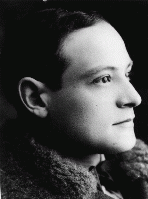
-
Wallace Witkowski describes harsh living conditions for non-Jews in Poland
Oral HistoryWallace and his family were Polish Catholics. His father was a chemical engineer and his mother a teacher. The Germans occupied Kielce in 1939. Wallace witnessed pogroms against Jews in 1942. Wallace was active in the anti-Nazi resistance, acting as a courier between partisan groups. In 1946, in liberated Poland, Wallace witnessed the Kielce pogrom. He was reunited with his father in the United States in 1949; other family members followed. The Communist regime in Poland, however, denied his only sister…
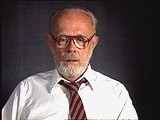
-
Abraham Lewent describes conditions in Skarzysko camp
Oral HistoryLike other Jews, the Lewents were confined to the Warsaw ghetto. In 1942, as Abraham hid in a crawl space, the Germans seized his mother and sisters in a raid. They perished. He was deployed for forced labor nearby, but escaped to return to his father in the ghetto. In 1943, the two were deported to Majdanek, where Abraham's father died. Abraham later was sent to Skarzysko, Buchenwald, Schlieben, Bisingen, and Dachau. US troops liberated Abraham as the Germans evacuated prisoners.
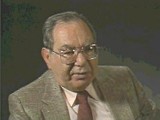
-
Beifeld album cover
PhotoCover to György Beifeld's album, featuring a road sign with the Hungarian Labor Service company number 109/13 posted in a muddy wasteland. The Jewish labor servicemen were forced to construct roads on these muddy fields to accommodate the advance of the Hungarian 2nd Army toward the Don River.
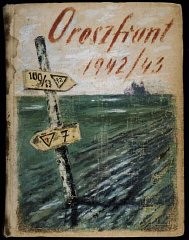
-
Abraham Lewent recalls how, while ill with typhoid, he persuaded the Skarzysko doctor that he was fit to work
Oral HistoryLike other Jews, the Lewents were confined to the Warsaw ghetto. In 1942, as Abraham hid in a crawl space, the Germans seized his mother and sisters in a raid. They perished. He was deployed for forced labor nearby, but escaped to return to his father in the ghetto. In 1943, the two were deported to Majdanek, where Abraham's father died. Abraham later was sent to Skarzysko, Buchenwald, Schlieben, Bisingen, and Dachau. US troops liberated Abraham as the Germans evacuated prisoners.
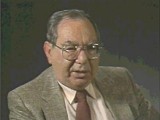
-
Ruth Meyerowitz describes sabotage effort in Malchow munitions factory
Oral HistoryIn Frankfurt, Ruth's family faced intensifying anti-Jewish measures; her father's business was taken over and Ruth's Jewish school was closed. In April 1943, Ruth and her family were deported to Auschwitz. Ruth was selected for forced labor and assigned to work on road repairs. She also worked in the "Kanada" unit, sorting possessions brought into the camp. In November 1944, Ruth was transferred to the Ravensbrueck camp system, in Germany. She was liberated in May 1945, during a death march from the…
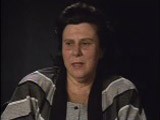
-

-
Schindler's factory under construction
PhotoConstruction of Oskar Schindler's armaments factory in Bruennlitz. Czechoslovakia, October 1944.
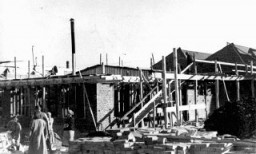
-
Death at a concentration camp quarry
PhotoA Soviet inmate lies dead in the Mauthausen concentration camp quarry. Austria, between July 1941 and May 1945.
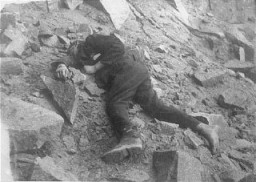
-
Chart of the camp workforce
PhotoChart indicating the workforce of the Auschwitz-Monowitz camp by category and nationality of inmates. Poland, January 16, 1945.
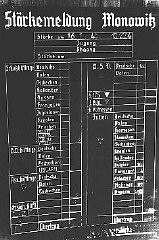
-
V-2 rockets
PhotoSections of V-2 rockets, the so-called Vengeance Weapons, are removed by rail from the Dora-Mittelbau camp after liberation. Near Nordhausen, Germany, June 1945.
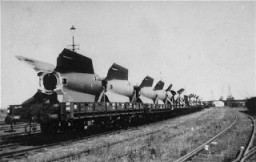
-
Gerda Weissmann
ID CardGerda was born to a Jewish middle-class family in Bielsko, Poland, a town noted for its textile industry. She began her education in Polish public school, but later entered a Catholic girls school. A rabbi was permitted to come into the school and instruct the Jewish students in religious studies. 1933-39: On Friday, September 1, 1939, German fighter planes appeared overhead, causing many people to flee the city. Gerda's family remained and lived through the intense shelling that followed on Sunday…
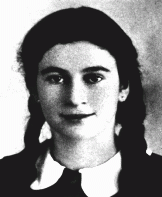
-
Chuna Grynbaum
ID CardChuna was born in a small one-story house that served as both his family's residence and their tailor shop. He was the youngest of nine children born to religious Jewish parents. The family's tailor shop mostly served Starachowice's Catholic Poles. The work was often done in exchange for goods such as firewood or a sack of potatoes. 1933-39: Chuna's father died unexpectedly in June 1939. After returning from synagogue one day, his father lay down to rest. He asked Chuna to close the shade to darken the…
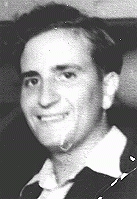
-
Eva Miodelska
ID CardEva was the oldest of four children born to a Jewish family in the central Polish town of Lipsko, about 30 miles southeast of Radom. The family lived at #12 Casimirska Street and Eva attended a private Jewish primary school. Eva's father owned a factory that produced shoes made from leather and cork. 1933-39: In the early 1930s Eva began secondary school in Zwolen, a town about 20 miles to the north. In 1936 her father left for Argentina to settle the estate of his deceased sister. For the two years he…
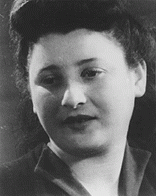
-
Salonika - Photograph
Media EssayBefore World War II, Salonika had the largest Jewish community in Greece. In April 1941, Germany occupied parts of Greece, including Salonika. Between 1941 and 1943, Salonika's Jewish community was destroyed. More t...
-
Beifeld album page satirizing travel posters
Artifact(Middle) In a take-off of travel posters advertising peaceful vacation spots, Beifeld draws a picture of a Hungarian military tent pitched next to a tree on which a bird is cheerfully chirping. Next to the tent the artist writes "Peaceful Surroundings" but above, a Soviet bomber releases a bomb aimed at the tent. [Photograph #58022]
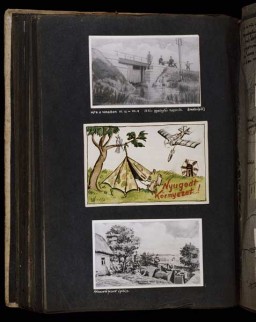
-
Beifeld album page
PhotoIn a take-off of travel posters advertising peaceful vacation spots, Beifeld draws a picture of a Hungarian military tent pitched next to a tree on which a bird is cheerfully chirping. Next to the tent the artist writes "Peaceful Surroundings" but above, a Soviet bomber releases a bomb aimed at the tent. [Photograph #58022]
